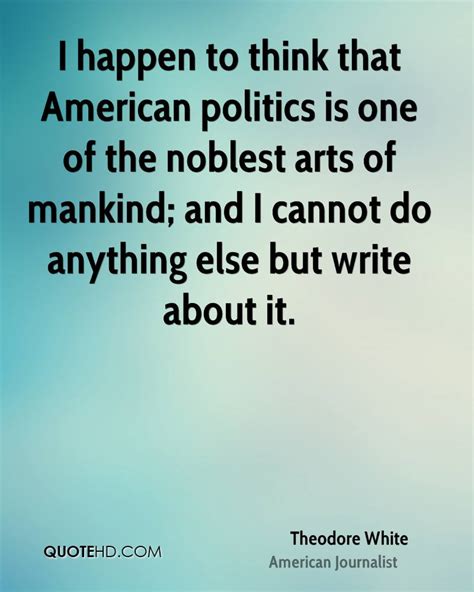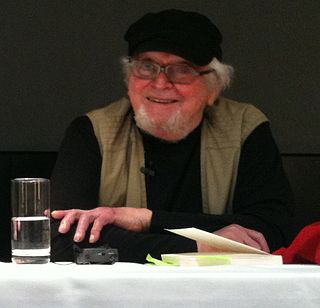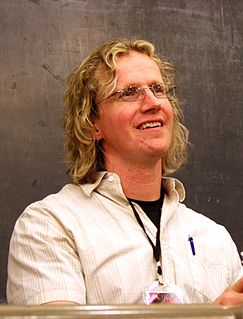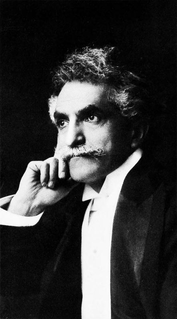A Quote by Theodore White
Always inflation comes gradually; is recognized too late; and can be cured only by ruthless political surgery, which, if delayed too long, proves futile.
Related Quotes
I thought that if the right time gets missed, if one has refused or been refused something for too long, it's too late, even if it is finally tackled with energy and received with joy. Or is there no such thing as "too late"? Is there only "late," and is "late" always better than "never"? I don't know.
Because the global ecosystem is a connected whole, in which nothing can be gained or lost and which is not subject to over-all improvement, anything extracted from it by human effort must be replaced. Payment of this price cannot be avoided; it can only be delayed. The present environmental crisis is a warning that we have delayed nearly too long.
We live, understandably enough, with the sense of urgency; our clock, like Baudelaire's, has had the hands removed and bears the legend, "It is later than you think." But with us it is always a little too late for mind, yet never too late for honest stupidity; always a little too late for understanding, never too late for righteous, bewildered wrath; always too late for thought, never too late for naïve moralizing. We seem to like to condemn our finest but not our worst qualities by pitting them against the exigency of time.
Too-lateness, I realized, has nothing to do with age. It’s a relation of self to the moment. Or not, depending on the person and the moment. Perhaps there even comes a time when it’s no longer too late for anything. Perhaps, even, most times are too early for most things, and most of life has to go by before it’s time for almost anything and too late for almost nothing. Nothing to lose, the present moment to gain, the integration with long-delayed Now.
Too many vacations that last too long, too many movies, too much TV, too much video game playing - too much undisciplined leisure time in which a person continually takes the course of least resistance gradually wastes a life. It ensures that a person's capacities stay dormant, that talents remain undeveloped, that the mind and spirit become lethargic and that the heart remains unfulfilled.
Of all human activities, writing is the one for which it is easiest to find excuses not to begin – the desk’s too big, the desk’s too small, there’s too much noise, there’s too much quiet, it’s too hot, too cold, too early, too late. I had learned over the years to ignore them all, and simply to start.
Life is insanely robust, though we can make species go extinct, and this is the bad thing. So I always make the point that you can't say, 'Is it too late?' That is the terrible question, because either answer promotes inaction. If it's too late, you don't need to act; if it's not too late, you don't need to act.































